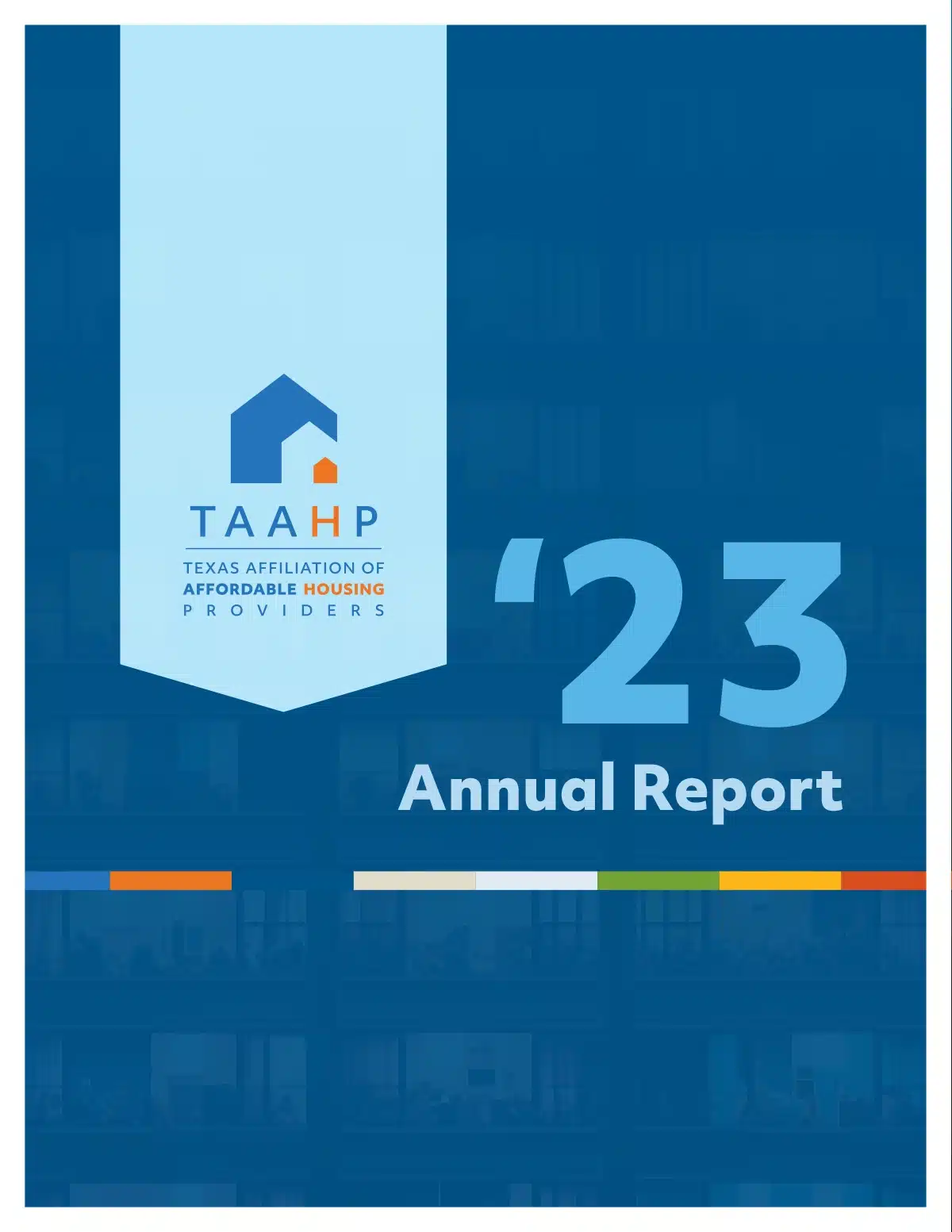by Tanya Lavelle, MPAff, TAAHP Policy Director

Despite it being a “lame duck” session, Congress has taken some action this year on legislation that will impact affordable housing across the country.
The Housing Opportunity Through Modernization Act of 2016
The Housing Opportunity Through Modernization Act of 2016 focuses on improving the way that public housing agencies manage affordable housing vouchers. The biggest changes pertain to project-based vouchers which are vouchers that people can use for affordable housing that are attached to a certain property. Changes include:Increasing the number of permissible project-based voucher units in a single property;
- Streamlining the process for individual rent determination, including decreasing the frequency of interim income reviews.
- Allows more flexibility in the way PHAs can use funding to repair public housing units
Low income families, seniors and people with disabilities will benefit greatly from these changes. There are also measures in the bill that protect property owners from any large swings in rent-based revenue that could result from these changes. The bill was passed unanimously by the House of Representatives on Feb. 2, 2016 and by the Senate on July 14, 2016.
The Affordable Housing Credit Improvement Plan of 2016
The Affordable Housing Credit Improvement Plan of 2016 proposes a 50% increase to the budget for LIHTC over a 5 year period. This funding increase would create anywhere from 200,000 to 225,000 new tax credit units over a 10 year period. Other changes include:
- Setting a minimum 4% rate for tax credit bonds and acquisition credits;
- Creates an income-averaging tool allowing tax credits to finance units for households earning up to 80% AMI as long as the average property household income is at 60% AMI or less.
The changes proposed in this bill will greatly improve the breadth of the LIHTC program, and will allow for many more families to gain affordable housing. The bill was introduced on May 19, 2016 but has yet to see any movement.

HR 3700 Passes the Senate and Heads to the President’s Desk
Senior Officers:
I am pleased to report that just a short time ago, the Senate unanimously passed H.R. 3700, the Housing Opportunity Through Modernization Act. This legislation includes many provisions of benefit to the housing industry, specifically for multifamily builders.
Earlier this year, H.R. 3700, sponsored by Rep. Luetkemeyer (R-MO), passed unanimously out of the House. NAHB anticipates that the President will quickly sign this bi-partisan legislation.
NAHB, while working with sponsors Senators Menendez (D-NJ), Scott (R-SC), Coons (D-DE) and Blunt (R-MO), and industry colleagues, met with every Senate office to urge their support. Additionally, NAHB engaged its grassroots and grassroots through a legislative alert, and sponsored an ad in Politico in support of H.R. 3700.
I want to specially highlight the work of Jessica Hall, who worked tirelessly with our housing allies to make passage before the August recess a reality.
Specifically this legislation would:
• Streamline inspection requirements in the Housing Choice Voucher Program, which will allow voucher holders to move into their units more quickly. The changes will level the playing field for voucher holders who are competing with market-rate renters who can move into a unit immediately.
• Allow the contract terms of HUD’s Section 8 Project Based Housing Choice Voucher program to be extended from 15 to 20 years. This will help facilitate the use of project-based vouchers within the Low Income Housing Tax Credit properties.
• Protect Section 8 Housing Choice Voucher residents from displacement due to fluctuations in the Fair Market Rent, which determines payment standard amounts for the voucher program. This protects voucher holders from economic factors beyond their control and allows owners to retain good tenants.
• Change the Rural Housing Service Single Family Guaranteed Loan Program so that it will be current with other government loan programs while providing efficiencies for home buyers and lenders.
• Reduce current FHA regulations surrounding existing condominium projects, including streamlining project certification rules and reducing owner-occupancy requirements. Easing restrictions will assist first-time home buyers and condo owners who want to sell their condo and move up to a single-family detached home.

